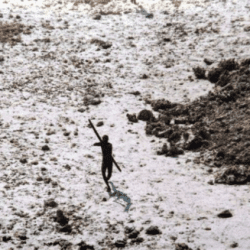A few years ago I met a man who had a chronic illness, who also traveled frequently to work on projects in the developing world. I asked him how he found the energy to do all that traveling while suffering from fatigue and other symptoms of his illness.
“I practice aggressive resting,” he told me. Aggressive resting.
I’ve been thinking about that phrase a lot since I got back from South Sudan 72 hours ago, asking myself what it looks like to practice resting after I just spent the past two months practicing medicine in a war zone.
To be honest, I’m still a little jet lagged — it’s a 9 hour time difference from South Sudan to Illinois, where I’m staying with my parents this week.
I’m still a little shell shocked. It’s emotionally disorienting to live in a war zone for two months and all of a sudden find myself home in the U.S. where there aren’t soldiers holding automatic weapons on every corner, and I don’t have to worry about snakes, scorpions, mosquitoes or bats biting me in my sleep.
I feel a little homesick for the sunshine, the dirt roads, the goats, the mopeds, the walks along the Nile river, the adorable children, the rhythm of caring for patients at the hospital.
I feel slightly guilty for being here instead of there.
It’s been challenging to switch gears now that I’m back in the U.S., where my current schedule consists of sleeping, writing, eating and watching Netflix, when just a few days ago I was walking for miles in 100+ degree heat, working long hours at the hospital, and often racing to save lives teetering on the brink of death.
Now that I’m home, I keep reminding myself that there are necessary rhythms in our lives: working and resting, vigilance and sleep, pouring out and filling up again, giving and receiving, starting and finishing, holding onto and letting go.
I keep reminding myself that rest is holy.
And I keep remembering that we thrive when we’re wells, not cisterns — a vivid lesson I learned when I spent three months working at a hospital in Togo, West Africa (which is also one of the reasons I named the book about that experience WELL.)
The village I worked in sat along the Oti River, and in the middle of a 110-degree heat wave, the pump that carried water from the river to the water treatment plant broke, and the town ran out of water. For days, all the pumps in the village were completely dry. People got so desperately thirsty that they started drinking water from old cisterns, where the water was several years old and contaminated with bacteria, and many people died because of it.
That’s the problem with cisterns. They grow stagnant. They run dry. They become toxic cesspools that make ourselves and each other sick.
But wells? Wells are a different story. Wells tap into an underground spring of life-giving water that fills them up from the inside out. Wells offer pure water to the thirsty only after they’ve filled all the way up themselves.
When we model our life after wells, when we practice “aggressive resting” and allow ourselves to fill up with Love — the Spring of Living Water that never runs dry — we have more to offer the thirsty world around us.
So this week, my goal is to rest. To fill back up. To be still as my heart, body, mind and soul soak up Love. To be restful in a restless world so I can better prepare to practice compassion again in this world that God so loves.
***
I wasn’t able to blog while I was in South Sudan because the internet connection was very, very slow. If you’d like to see pictures and stories from my time there, you can visit my Facebook page or Instagram feed.
Also, if you’d like to read more about what it’s like to practice medicine in the developing world, you can get your copy of WELL here!











